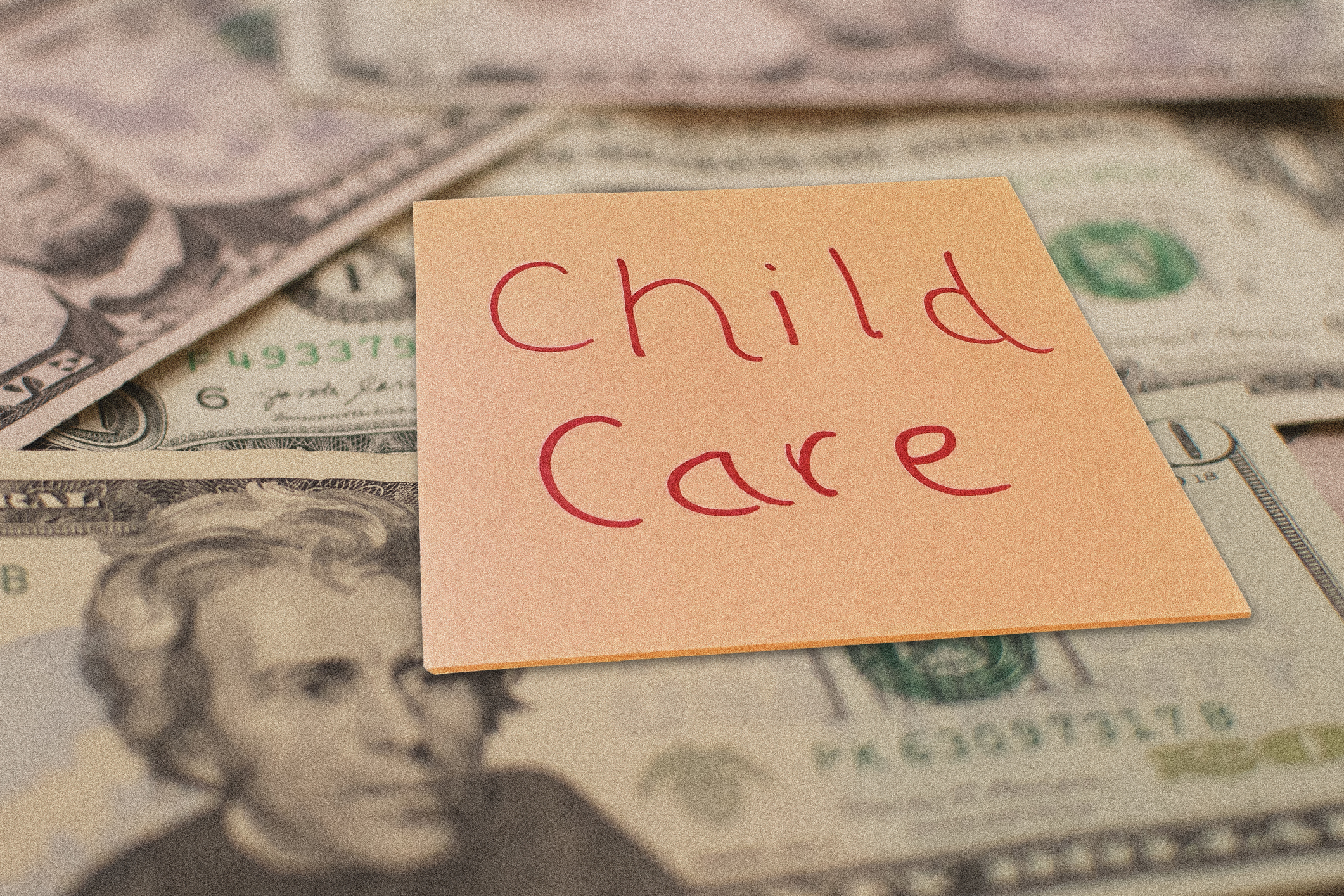
When we first learned we were expecting a mini-us, one of the first things my husband and I wondered was how much money we should save before having a baby.
Formula, diapers, pediatrician visits, childcare, and clothes all add up, not to mention putting aside money for a college fund. We even joked that our kid better get a college scholarship when she’s 18.
There might not be one magic number of how much money you need to save before having a baby because that amount differs among families and couples. Some families will be comfortable with a larger nest egg, while others will take a learn-as-you-go approach. There is no right or wrong way.
However, finding ways to save money is essential as parents, so here are some financial steps we took to make sure we gave our newest family member the best start — and future — possible.
More from Mom.com: My Husband Is a CPA, and This Is How We Budget for Our Family Expenses
1. Crowd-source

If you’re looking to budget for a baby, first ask other parents how they did it. I know, unsolicited advice can be frustrating, especially when it comes to parenting itself. But it can’t hurt to ask trusted family and friends how they saved money for their newest, cutest family member.
There might not be one answer for how much money you should save for your baby because every family is different. However, your loved one can still share advice on couponing, purchasing baby items at a discount, and even give you baby items they may not need anymore, such as baby jackets, pajamas, and strollers.
2. Talk with an expert

One of the first steps you should take before having a baby is to meet with a financial consultant to discuss your budgeting and develop an overall financial strategy.
If you have an accountant, they can also be a helpful resource. My husband and I sat down with our ours, and he had some great advice for us on budgeting, saving for baby, how to declare our baby when we filed our taxes, and so forth.
3. Look into a 529 plan

According to finance expert Bobbi Rebell, author of Launching Financial Grownups, 529 plans can be a great way for parents to save for college while getting some solid tax breaks. The money contributed is after-tax money. However, she explained to me that 529 plan earnings grow tax-deferred, and the earnings are not taxed as long as they are used for qualified education-related expenses. (That usually includes tuition, books, school supplies, and room and board.)
Some employers have programs with automatic contributions as a payroll deduction, which can make regular contributions easier. She reminded me that it’s not just parents who can contribute to this higher education fund — grandparents and other generous relatives can as well. (Just be sure to coordinate because there are contribution limits!)
More from Mom.com: Everything You Need to Know About 529 Plans
4. Invest in their future — literally

I once met a parent who opened a stock portfolio for his baby. I couldn’t stop picturing “Boss Baby” in my mind. However humorous the visual was, investing is one of the best ways to grow your savings because it allows you to capitalize on compound interest and the fact that, historically, the market has gone up over time.
There are many different investing apps to consider, but the family finance company Greenlight is our favorite. The app offers “Investing for Parents,” an easy, flexible way for parents to invest in their children’s futures. Via the Greenlight app, parents can research stocks and ETFs with Morningstar, then create their investment portfolio with fund recommendations based on their goals.
5. Ask insurance what they’ll cover

Even if your OB-GYN accepts your insurance, you still have to pay for your hospital stay. In fact, at the hospital in New York where I delivered, you had to pay extra for a private room, which is not cheap or covered by most insurance plans. A few months before your due date, ask your insurance provider what hospital expenses it’ll cover and be aware of whether the hospital is in-network with that insurer. You may want to make some different decisions based on that information.
Some hospitals may also require that you pre-pay any portion of your expected care that your insurance won’t cover. You probably won’t need to do anything ahead of time for this, as the hospital will make sure to contact you if they require payment. Still, it’s an expense you might want to prepare for as soon as possible during your pregnancy.
You can also compare prices of potential procedures in advance; Rebell recommends the site Clear Health Costs to find comparable prices in your area.
In my case, my pediatrician was not a staffer at the hospital where I delivered my baby, so I had to use the on-call hospital pediatrician to check out my newborn — and that pediatrician didn’t accept my insurance. Keep that in mind when also searching for a pediatrician. You may want one who is affiliated with the hospital where you are delivering because you know it takes your insurance.
6. Figure out your maternity leave

If you’re employed, consult your company’s handbook or the human resources department to understand its maternity leave policy and what pay you are entitled to. Every company is different, so it’s important to know exactly what you’re eligible for.
Some companies may ask you to fill out paperwork in advance and submit a plan, so it’s best to know what you need ahead of time in case something unexpected happens with your pregnancy.
If you’re self-employed, or employed but don’t have access to maternity leave or pay, it will be up to you to figure out your own maternity leave. It might be helpful to start a small savings account now to put aside money you can use when you’re off work.
7. Estimate childcare costs

In planning for how much money to save before having a baby, a priority for most parents is childcare. The best time to prepare for childcare costs is during your pregnancy. You may need to join a waiting list at a daycare center or put down a deposit now to secure your baby’s spot.
If you plan on using a family member or other lower-cost childcare options, it’s still a good idea to get everything hashed out now so there aren’t any financial surprises later.
Once you know your approximate childcare costs, you can take some preparatory steps, like saving now for it, and adjusting your post-pregnancy budget to account for the new expenses.
8. Be honest at the hospital

While planning for how much money to save before having a baby, it’s also important to remember that some expenses can be totally unexpected. For instance, if something happens at the hospital, you may be left with unexpected bills you weren’t prepared to pay. If that happens to you, talk to your hospital’s financial department about your options.
I did this and have friends who did this — and it worked. If the hospital bills are too much to pay off, and you’re paying out of pocket for whatever reason, contact the billing department of the hospital in advance to let them know you will be paying yourself, and see if you can negotiate a lower price and receive a payment plan.
Rebell thinks it never hurts to ask to collaborate on a payment plan with the hospital or doctors. (I was able to arrange a payment plan with the hospital pediatrician who didn’t accept our insurance.) Rebell says once you know what you are up against financially, then “you can make a plan to save in advance so you won’t go into debt.”
These are just some of the many ways you can save and budget before your baby arrives. Do whatever is best for your family, and don’t be afraid to ask others for advice and guidance. Even with finances, when it comes to raising children, it takes a village.
More from Mom.com: 17 Side Hustle Gigs for Moms to Make Extra Money




